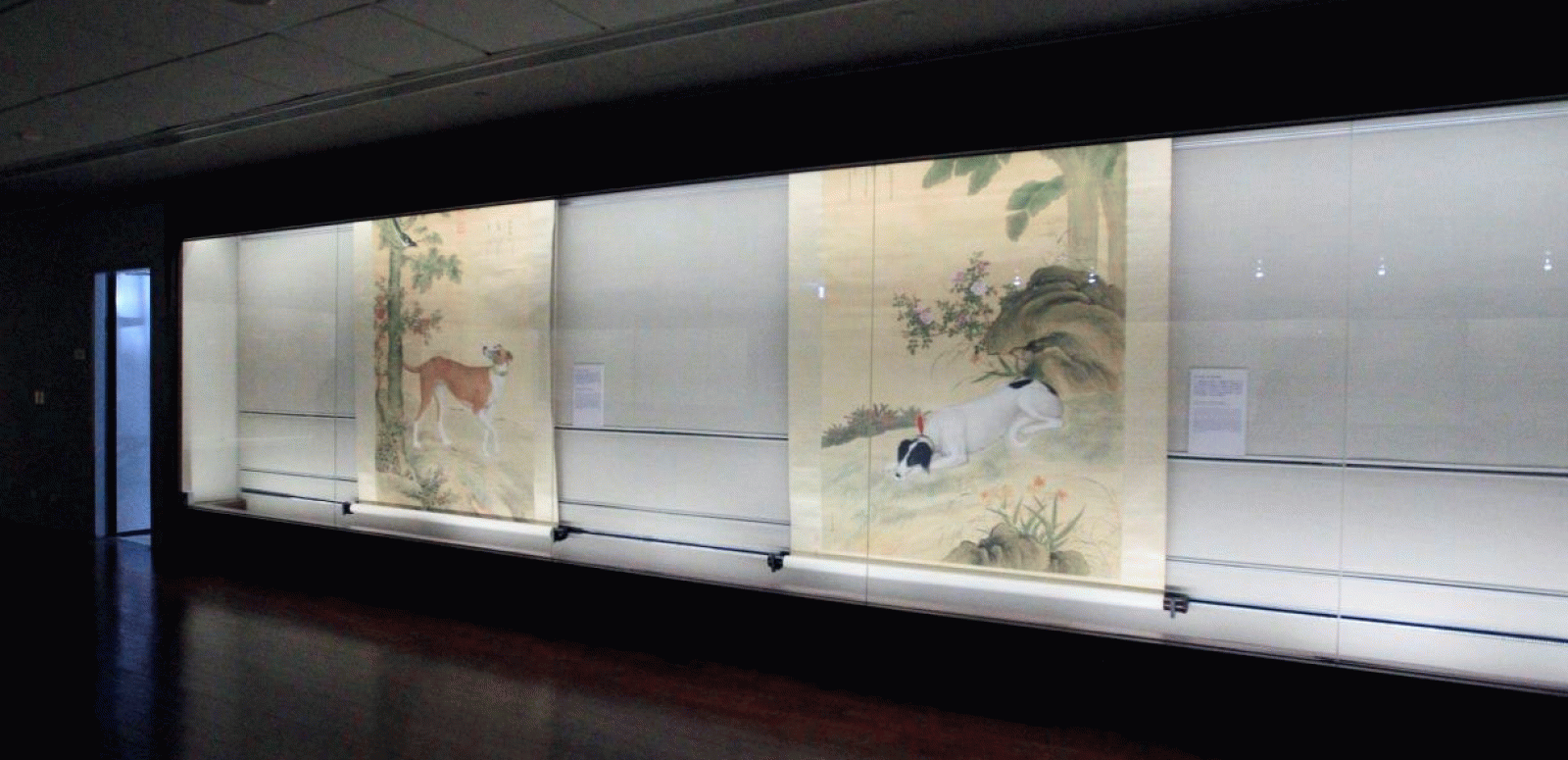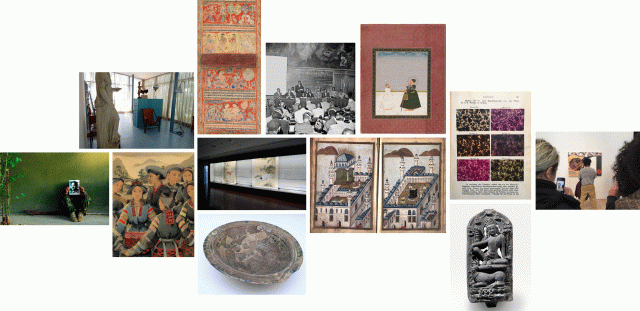Art Histories Seminar
Lianming Wang
Ten Noble Hounds: Pictorial Monuments and Qing Authority in Frontier Areas

Giuseppe Castiglione’s (1688-1766) Paintings of Tributary Hounds displayed in the exhibition “Portrayals from a Brush Divine: A Special Exhibition on the Tricentennial of Giuseppe Castiglione's Arrival in China” (October 8 – December 31, 2015, National Palace Museum Taipei), 247.5 x 163.7 cm (left: Yargatu/ “Soft-brown Leopard”), 247.2 x 163 cm (right: Saksahatu/ “Magpie that soars in the sky”), color on silk, National Palace Museum, Taipei.
Relying on three sets of nearly unexamined hound images, this paper investigates the hounds collected and kept in Qianlong's palaces and imperial parks that engaged in Manchu ritual, martial and political life through an analysis of their various forms of visual representation, meanings and historical events associated with them. Primary focus will be paid to the hounds' origins (mostly from outlying provinces and frontier areas that borders the territories of Mongolian or Tibetan tribes), discussing their roles in constructing multi-ethnic Manchu (royal) identity and establishing symbolic control of these areas. Other research questions also include, but are not limited to, the examination of the interconnectedness of various hound images that co-existed in Qianlong's court, the division of labor in the making of these images, as well as the compositional features that are embedded in the early modern European concept of animal portrait.
Lianming Wang is Assistant Professor at the Institute of East Asian Art History, Heidelberg University. He specializes in global Jesuit art and architecture, with a focus on early modern China. He is preparing his book manuscript Das Erbe der Gesellschaft Jesu: Architektur und transkulturelle Verflechtungsräume im Peking der Frühen Neuzeit (Universitätsverlag C. Winter Heidelberg, Spring 2019). He studied art history, classical archeology and Italian Philology in Shanghai, Padova and Würzburg and received his Ph.D. (2014) in East Asian Art History from Heidelberg University. Before joining the faculty in Heidelberg, he has taught at the Institute of East Asian Cultural Studies, University of Würzburg (2009-2011). He received research grants from Geschwister-Supp Stiftung, Heinz-Götze Stiftung, DAAD, and USF Ricci Institute, among others. He was involved in organizing many international workshops and conferences related to Sino-European exchanges, including "The Jesuit Legacies: Images, Visuality, and Cosmopolitanism in Qing China" (chief organizer; 2015) and "Reframing Chinese Objects: Practices of Collecting and Displaying in Europe and the Islamic World, 1400-1800" (co-organizer; 2018). Currently he is working on his habilitation project "Animal Encounters and Qing Political Narratives" dealing with the making and display of large-sized painting sets that connect to the Qing tributary animals.
14 gennaio 2019, ore 17:00
Forum Transregionale Studien
Wallotstr. 14
14193 Berlin
www.forum-transregionale-studien.de
Avviso
Questo evento viene documentato fotograficamente e/o attraverso riprese video. Qualora non dovesse essere d’accordo con l’utilizzo di immagini in cui potrebbe essere riconoscibile, da parte del Kunsthistorisches Institut in Florenz a scopo di documentazione degli eventi e di pubbliche relazioni (p.e. social media) la preghiamo gentilmente di comunicarcelo.



